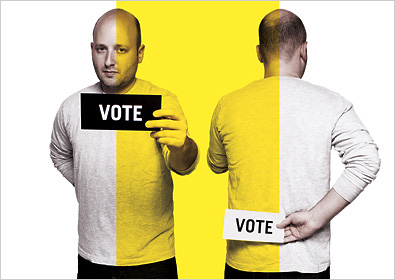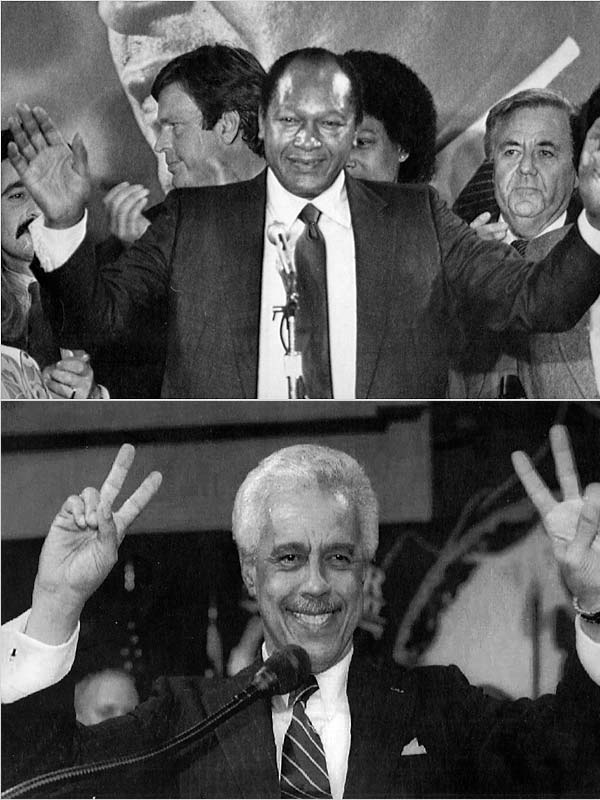| Want to send this page or a link to a friend? Click on mail at the top of this window. |
| More Books and Arts |
| Posted October 16, 2008 |
| FUNNY NUMBERS |
| Do Polls Lie About Race? |
 |
| THUSSFARELL |
| By KATE ZERNIKE |
|
|
|
 |
|
| ASSOCIATED PRESS, TOP; GREG GIBSON/AGENCE FRANCE-PRESSE | |
| MEN OF EFFECT Former Mayor Tom Bradley of Los Angeles, top, and former Gov. L. Douglas Wilder of Virginia, above, both lent their names to a voting phenomenon peculiar to black candidates. Mr. Bradley lost in a close race for governor, while Mr. Wilder won in a close race. Polls predicted that both candidates would win by large margins. |
| Wehaitians.com, the scholarly journal of democracy and human rights |
| More from wehaitians.com |